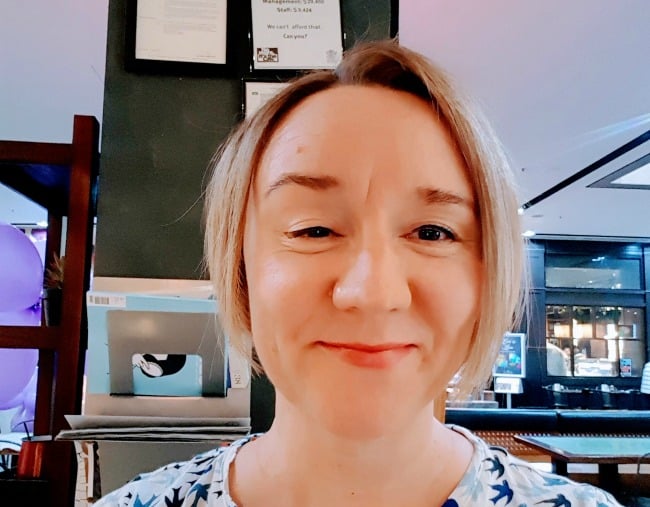
Have you ever heard or seen a word or phrase that made you feel intensely uncomfortable with who you are?
Until about eight years ago, I had never been on the receiving end of discriminatory language. And yet it managed to find a way into my white, straight, agnostic, charmed life. The first time it happened, I was walking through a shopping centre. The words assaulted me suddenly, shook the breath out of me: ‘PSYCHO BITCH’ emblazoned on a woman’s black T-shirt in hot pink. They wobbled with her breasts as she walked.
I felt like I was going to be sick. Heat rushed into my face. I had only just recovered from a psychotic episode. Suddenly, the word ‘Psycho’ was embedded in my brain. Was it short for psychotic? Psychopathic? It didn’t matter. All I knew was that the word ‘Psycho’ was inextricably linked to the word ‘Bitch’. And that meant I was a Psycho Bitch.
Derogatory language to describe mental illness is age-old and entrenched deeply in our everyday conversations. Words like ‘the nut house’, ‘the psycho ward’, ‘going mental’ ‘committing suicide’ ‘going schizo’. The list goes on: nuts, loony, loony bin, screw loose, bonkers, nutcase, nutter, off their rocker, basket case, whack job, lunatic, cuckoo… I could keep going, but I try and work to a word limit.
Even needing an appointment with a psychiatrist or psychologist is often joked about. This language, and the way we use it, insidiously perpetuates stigma surrounding mental illness and mental health care. The words are often used humorously, which minimises and even completely sweeps aside the suffering experienced by people who have a mental illness. Or they are used in an openly derogatory manner to express distaste or disgust.


Top Comments
I have a psychotic disorder and I've lost count of the amount of times the media reports a violent killer/attacker as being "psychotic" despite no evidence of psychosis. I would suggest to the media and general public that if they're going to use words like psychotic they should at first find out what it actually means and no, it is not a byword for '''violent killer" as many seem to assume.
Thank you for reading and commenting. It's so important for the people who have these illnesses to comment. I couldn't agree more with you. If you enjoyed this piece on discriminatory language, you may also be interested in https://anitalinkthoughtfoo..., which deals with the role the media plays in vilifying our most vulnerable mentally ill. You can also find this piece on mamamia at: https://www.mamamia.com.au/...
Thank you. I'll check it out.
I feel your pain. I also suffer with bipolar. Not many understand our struggles despite claiming that they do. I believe the media has a lot to answer for. For many, the media is their only source of education on mental illness. I appreciate that Mamamia reports responsibly on stories involving mental illness (some comments from readers however!).
A few weeks ago, 9 news reported the Victorian state budget was boosting funding for mental health services. As the reporter was speaking, scenes of horrible violence in hospital waiting rooms played. The reporter and presenter commented that it was important centre’s for crisis mental health care were set up to keep people with mental illness out of emergency departments which, in turn, would make other people and children waiting and hospital staff a lot safer. As though those with mental illness (which of course must be those people being violent in the footage they were showing) are dangerous and need to be kept away from normal people.
The purpose of crisis centres is to give those suffering a mental health crisis the care and dignity they need in their hour of need with properly trained professionals. Waiting in a public hospital waiting room when you’re in crisis can be humiliating and frightening and often, hospital staff don’t have the vital resources to deal with these specialised issues. It has nothing to do with violence. SOME people affected by drugs and/or alcohol can be risky however and I feel reasonable confident those in the footage were affected by some kind of substance, not mentally ill as was implied.
We have so far to go. Sigh. Thank god for StigmaWatch.
Well said. We do have a long way to go, but will get there if we continue to generate open discussion. Hearing from people who have a mental illness, especially a complex mental illness is so incredibly valuable. Thank you for reading and commenting.